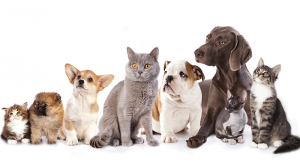
What is World Cancer Day?
A truly global event taking place every year on 4 February, World Cancer Day unites the world’s population in the fight against cancer.
It aims to save millions of preventable deaths each year by raising awareness and education about the disease, pressing governments and individuals across the world to take action.
Why World Cancer Day is important
Currently, 8.8 million people die from cancer worldwide every year, out of which 4 million people die prematurely (aged 30 to 69 years)
World Cancer Day is the ideal opportunity to spread the word and raise the profile of cancer in people’s minds and in the world’s media.
World Cancer Day And Companion Animals
How many companion animals are diagnosed each year with cancer?
There are 65 million dogs and 32 million cats in the United States. Of these, roughly 6 million new cancer diagnoses are made in dogs and a similar number made in cats each year. See http://ccr.nci.nih.gov.
How does this figure compare with the human population?
According to the American Cancer Society, approximately 11,028,000 people are living with cancer in the United States. Over 1,000,000 new diagnoses are made each year. 1 in 2 men and 1 in 3 women will be diagnosed with cancer in the United States. See http://www.cancer.org.
How are pet cancers similar to human cancers?
Cancer in the pet population is a spontaneous disease often similar to cancer seen in humans; some examples include non-Hodgkin’s lymphoma, prostate cancer, head and neck carcinoma, mammary carcinoma, melanoma, soft tissue sarcoma, and osteosarcoma.
In what ways is the companion animal model relevant to the study of human cancer?
The Canine Genome Sequencing Project at the Broad Institute successfully mapped the genome of a boxer named Tasha in 2005. The map of the genome has been used to confirm that many of the same genes involved in dog cancers are also involved in human cancers. See http://research.nhgri.nih.gov/dog_genome.
What factors contribute to the relevance of the spontaneous companion animal model to human cancer?
According to the NCI Comparative Oncology Program, the model is relevant for several reasons: dogs and cats share many environmental risk factors with their human owners, including food and water sources and even the air we breathe. Dog and cat cancers also behave in biologically similar ways to human cancers. Unfortunately, dog and cat cancers occur spontaneously in sufficient numbers for clinical trials and biological studies, a unique occurrence in the animal kingdom. Further, human owners are likely to consent to participate in clinical trial because current protocols are not as effective. The progression of cancer in companion animals is rapid and therefore clinical trial also progresses more rapidly than in other models.
Where is comparative oncology research being conducted?
The Comparative Oncology Trials Consortium (COTC) is a network of Nineteen academic comparative oncology centers, centrally managed by the NIH-National Cancer Institutes Comparative Oncology Program, that designs and executes clinical trials in dogs with cancer to assess novel therapies …and integrate them into the design of current human Phase I and II clinical trials. See https://ccrod.cancer.gov/confluence/display/CCRCOPWeb/Comparative+Oncology+Trials+Consortium.
The Veterinary Cancer Society (VCS), a 1000 member professional society, sponsors an annual conference to disseminate the latest veterinary and comparative oncology research to the membership.
In addition, board certified veterinary oncologists across the country are collaborating with one another, with human oncologists, and with medical and pharmaceutical researchers on a variety of initiatives.
Who will you honor on World Cancer Day?
If you would like to make a donation in honor or memory of someone you love (pet or person) who has or has had cancer, please visit our Memorial Wall and consider making a Memorial Donation. Your donation goes to furthering our efforts to discovering the common links between canine and human cancers and the causes of these cancers through comparative oncology research. You can read about our continuing mission here.
The Puppy Up Foundation is a 501c3 Non-Profit organization. Your donation is tax deductible.
Thank you.








